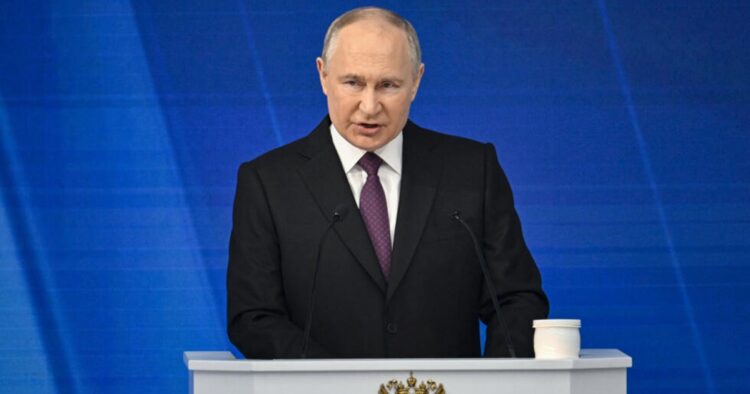Russian President Vladimir Putin issued a stark warning to NATO countries, cautioning them against sending troops to Ukraine. In his speech, Putin ramped up threats against Europe and the US, suggesting that such actions could lead to a nuclear conflict. Referring to recent remarks by French President Emmanuel Macron about the possibility of European ground troops in Ukraine, Putin emphasized the dire consequences such a move could entail.
Putin highlighted the potential for a catastrophic conflict, asserting that Russia possesses weapons capable of striking targets on NATO territory. He warned against underestimating Russia’s capabilities and history, recalling past interventions in Russian territory and suggesting that any future intervention would face even graver repercussions.
Despite dismissing Western warnings of a potential Russian attack on Europe as “nonsense,” Putin underscored the seriousness of the situation, implying that any Western intervention in Russia could escalate to a nuclear confrontation. He criticized what he perceived as Western arrogance and urged dialogue while reaffirming Russia’s readiness to use its nuclear forces if necessary.
The French president’s recent comments, followed by similar sentiments from Germany and the UK, sparked concerns about escalating tensions. While some leaders, like Estonian Prime Minister Kaja Kallas, appeared supportive of Macron’s stance, others emphasized the importance of dialogue and non-military solutions.
Putin’s speech coincided with Russia’s ongoing military successes in Ukraine, with recent advances indicating a growing momentum in Russian operations. Putin reiterated Russia’s demand for Ukraine’s unconditional surrender, emphasizing the need for what he termed “denazification” of the country.
Beyond military matters, Putin addressed internal challenges facing Russia, particularly its declining population. He proposed financial measures to support larger families while criticizing what he described as “western values” undermining traditional family structures.
The timing of Putin’s speech, just weeks before a presidential election in which he is expected to secure another term, underscores its significance. Meanwhile, concerns about opposition leader Alexei Navalny’s funeral overshadowing the event highlight ongoing political tensions within Russia.
As Navalny’s supporters prepare to gather for his funeral, uncertainty looms over potential police intervention. Navalny’s death has yet to elicit a response from Putin, further underscoring the complexities of Russia’s political landscape.

















Comments